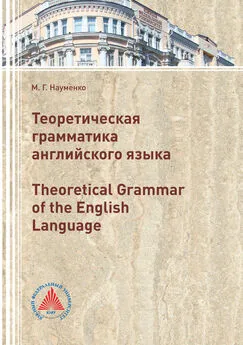Michael Ondaatje - The English Patient
- Название:The English Patient
- Автор:
- Жанр:
- Издательство:неизвестно
- Год:неизвестен
- ISBN:нет данных
- Рейтинг:
- Избранное:Добавить в избранное
-
Отзывы:
-
Ваша оценка:
Michael Ondaatje - The English Patient краткое содержание
The English Patient - читать онлайн бесплатно полную версию (весь текст целиком)
Интервал:
Закладка:
During the verbal nights, they travel his country of five rivers. The Sutlej, Jhelum, Ravi, Chenab, Beas. He guides her into the great gurdwara, removing her shoes, watching as she washes her feet, covers her head. What they enter was built in 1601, desecrated in 1757 and built again immediately. In 1830 gold and marble were applied. “If I took you before morning you would see first of all the mist over the water. Then it lifts to reveal the temple in light. You will already be hearing the hymns of the saints—Ramananda, Nanak and Kabir. Singing is at the centre of worship. You hear the song, you smell the fruit from the temple gardens—pomegranates, oranges. The temple is a haven in the flux of life, accessible to all. It is the ship that crossed the ocean of ignorance.”
They move through the night, they move through the silver door to the shrine where the Holy Book lies under a canopy of brocades. The ragis sing the Book’s verses accompanied by musicians. They sing from four in the morning till eleven at night. The Granth Sahib is opened at random, a quotation selected, and for three hours, before the mist lifts off the lake to reveal the Golden Temple, the verses mingle and sway out with unbroken reading.
Kip walks her beside a pool to the tree shrine where Baba Gujhaji, the first priest of the temple, is buried. A tree of superstitions, four hundred and fifty years old. “My mother came here to tie a string onto a branch and beseeched the tree for a son, and when my brother was born returned and asked to be blessed with another. There are sacred trees and magic water all over the Punjab.”
Hana is quiet. He knows the depth of darkness in her, her lack of a child and of faith. He is always coaxing her from the edge of her fields of sadness. A child lost. A father lost.
“I have lost someone like a father as well,” he has said. But she knows this man beside her is one of the charmed, who has grown up an outsider and so can switch allegiances, can replace loss. There are those destroyed by unfairness and those who are not. If she asks him he will say he has had a good life—his brother in jail, his comrades blown up, and he risking himself daily in this war.
In spite of the kindnesses in such people they were a terrible unfairness. He could be all day in a clay pit dismantling a bomb that might kill him at any moment, could come home from the burial of a fellow sapper, his energy saddened, but whatever the trials around him there was always solution and light. But she saw none. For him there were the various maps of fate, and at Amritsar’s temple all faiths and classes were welcome and ate together. She herself would be allowed to place money or a flower onto the sheet spread upon the floor and then join in the great permanent singing.
She wished for that. Her inwardness was a sadness of nature. He himself would allow her to enter any of his thirteen gates of character, but she knew that if he were in danger he would never turn to face her. He would create a space around himself and concentrate. This was his craft. Sikhs, he said, were brilliant at technology. “We have a mystical closeness … what is it?” “Affinity.” “Yes, affinity, with machines.”
He would be lost among them for hours, the beat of music within the crystal set whacking away at his forehead and into his hair. She did not believe she could turn fully to him and be his lover. He moved at a speed that allowed him to replace loss. That was his nature. She would not judge it in him. What right did she have. Kip stepping out each morning with his satchel hanging off his left shoulder and walking the path away from the Villa San Girolamo. Each morning she watched him, seeing his freshness towards the world perhaps for the last time. After a few minutes he would look up into the shrapnel-torn cypresses, whose middle branches had been shelled away. Pliny must have walked down a path like this, or Stendahl, because passages in The Charterhouse of Parma had occurred in this part of the world too.
Kip would look up, the arch of the high wounded trees over him, the path in front of him mediaeval, and he a young man of the strangest profession his century had invented, a sapper, a military engineer who detected and disarmed mines. Each morning he emerged from the tent, bathed and dressed in the garden, and stepped away from the villa and its surroundings, not even entering the house—maybe a wave if he saw her—as if language, humanity, would confuse him, get, like blood, into the machine he had to understand. She would see him forty yards from the house, in a clearing of the path.
It was the moment he left them all behind. The moment the drawbridge closed behind the knight and he was alone with just the peacefulness of his own strict talent. In Siena there was that mural she had seen. A fresco of a city. A few yards outside the city walls the artist’s paint had crumbled away, so there was not even the security of art to provide an orchard in the far acres for the traveller leaving the castle. That was where, she felt, Kip went during the day. Each morning he would step from the painted scene towards dark bluffs of chaos. The knight. The warrior saint. She would see the khaki uniform flickering through the cypresses. The Englishman had called him fato profugus —fate’s fugitive. She guessed that these days began for him with the pleasure of lifting his eyes up to the trees.
They had flown the sappers into Naples at the beginning of October 1943, selecting the best from the engineering corps that were already in southern Italy, Kip among the thirty men who were brought into the booby-trapped city.
The Germans in the Italian campaign had choreographed one of the most brilliant and terrible retreats in history. The advance of the Allies, which should have taken a month, took a year. There was fire in their path. Sappers rode the mudguards of trucks as the armies moved forward, their eyes searching for fresh soil disturbances that signalled land mines or glass mines or shoe mines. The advance impossibly slow. Farther north in the mountains, partisan bands of Garibaldi communist groups, who wore identifying red handkerchiefs, were also wiring explosives over the roads which detonated when German trucks passed over them.
The scale of the laying of mines in Italy and in North Africa cannot be imagined. At the Kismaayo-Afmadu road junction, 260 mines were found. There were 300 at the Omo River Bridge area. On June 30, 1941, South African sappers laid 2,700 Mark 11 mines in Mersa Matruh in one day. Four months later the British cleared Mersa Matruh of 7,806 mines and placed them elsewhere.
Mines were made out of everything. Forty-centimetre galvanized pipes were filled with explosives and left along military paths. Mines in wooden boxes were left in homes. Pipe mines were filled with gelignite, metal scraps and nails. South African sappers packed iron and gelignite into four-gallon petrol cans that could then destroy armoured cars.
It was worst in the cities. Bomb disposal units, barely trained, were shipped out from Cairo and Alexandria. The Eighteenth Division became famous. During three weeks in October 1941, they dismantled 1,403 high-explosive bombs.
Italy was worse than Africa, the clockwork fuzes nightmarishly eccentric, the spring-activated mechanisms different from the German ones that units had been trained in. As sappers entered cities they walked along avenues where corpses were strung from trees or the balconies of buildings. The Germans often retaliated by killing ten Italians for every German killed. Some of the hanging corpses were mined and had to be blown up in midair.
The Germans evacuated Naples on October 1, 1943. During an Allied raid the previous September, hundreds of citizens had walked away and begun living in the caves outside the city. The Germans in their retreat bombed the entrance to the caves, forcing the citizens to stay underground. A typhus epidemic broke out. In the harbour scuttled ships were freshly mined underwater.
The thirty sappers walked into a city of booby traps. There were delayed-action bombs sealed into the walls of public buildings. Nearly every vehicle was rigged. The sappers became permanently suspicious of any object placed casually in a room. They distrusted everything they saw on a table unless it was placed facing “four o’clock.” Years after the war a sapper putting a pen on a table would position it with the thicker end facing four o’clock.
Naples continued as a war zone for six weeks and Kip was there with the unit for the whole period. After two weeks they discovered the citizens in the caves. Their skin dark with shit and typhus. The procession of them back into the city hospitals was one of ghosts.
Four days later the central post office blew up, and seventy-two were killed or wounded. The richest collection of mediaeval records in Europe had already burned in the city archives.
On the twentieth of October, three days before electricity was to be restored, a German turned himself in. He told authorities that there were thousands of bombs hidden in the harbour section of the city that were wired to the dormant electrical system. When power was turned on, the city would dissolve in flames. He was interrogated more than seven times, in differing stages of tact and violence—at the end of which the authorities were still uncertain about his confession. This time an entire area of the city was evacuated. Children and the old, those almost dead, those pregnant, those who had been brought out of the caves, animals, valuable jeeps, wounded soldiers out of the hospitals, mental patients, priests and monks and nuns out of the abbeys. By dusk on the evening of October 22, 1943, only twelve sappers remained behind.
The electricity was to be turned on at three p.m. the next day. None of the sappers had ever been in an empty city before, and these were to be the strangest and most disturbing hours of their lives.
During the evenings thunderstorms roll over Tuscany. Lightning drops towards any metal or spire that rises up out of the landscape. Kip always returns to the villa along the yellow path between the cypresses around seven in the evening, which is when the thunder, if there is going to be thunder, begins. The mediaeval experience.
He seems to like such temporal habits. She or Caravaggio will see his figure in the distance, pausing in his walk home to look back towards the valley to see how far away the rain is from him. Hana and Caravaggio return to the house. Kip continues his half-mile uphill walk on the path that curls slowly to the right and then slowly to the left. There is the noise of his boots on the gravel. The wind reaches him in bursts, hitting the cypresses broadside so they tilt, entering the sleeves of his shirt.
For the next ten minutes he walks, never sure if the rain will overtake him. He will hear the rain before he feels it, a clicking on the dry grass, on the olive leaves. But for now he is in the great refreshing wind of the hill, in the foreground of the storm.
If the rain reaches him before he gets to the villa, he continues walking at the same pace, snaps the rubber cape over his haversack and walks on within it.
In his tent he hears the pure thunder. Sharp cracks of it overhead, a coach-wheel sound as it disappears into the mountains. A sudden sunlight of lightning through the tent wall, always, it seems to him, brighter than sunlight, a flash of contained phosphorus, something machinelike, to do with the new word he has heard in the theory rooms and through his crystal set, which is “nuclear.” In the tent he unwinds the wet turban, dries his hair and weaves another around his head.
The storm rolls out of Piedmont to the south and to the east. Lightning falls upon the steeples of the small alpine chapels whose tableaux reenact the Stations of the Cross or the Mysteries of the Rosary. In the small towns of Varese and Varallo, larger-than-life terra-cotta figures carved in the 1600s are revealed briefly, depicting biblical scenes. The bound arms of the scourged Christ pulled back, the whip coming down, the baying dog, three soldiers in the next chapel tableau raising the crucifix higher towards the painted clouds.
Читать дальшеИнтервал:
Закладка:










